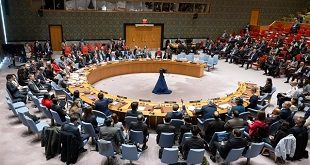– Trump rejection ‘misguided’ –
Dutch bank ING said it would have “close to zero exposure” to coal power generation by 2025, and a group of more than 200 global investors launched a campaign to pressure the world’s largest corporate carbon emitters — including BP, Airbus, Volkswagen and Glencore — to go greener.
According to the International Energy Agency, green energy investments of about $3.5 trillion per year will be needed for the world to stay under the 2 C limit — double current spending.
“While the challenge is great, we must do everything in our power to meet it. We know it is the difference between life and death for millions of vulnerable people around the world,” said Frank Bainimarama, the prime minister of Fiji who presided over UN climate talks in Bonn last month.
On current emissions trends, the world is on course for warming of 3 C, experts warn, with life- and asset-threatening superstorms, sea-level rise, floods and droughts the result.
Trump came under fire from all quarters on Tuesday.
His rejection of the Paris pact was “politically short-sighted and misguided, economically irresponsible, and scientifically wrong,” said former UN chief Ban Ki-moon.
But American businesses, regions and local government leaders have pushed on, regardless of the federal government.
– ‘Picking up the slack ‘ –
“It doesn’t matter that Donald Trump backed out of the Paris Agreement,” said former California governor Arnold Schwarzenegger, the face of the R20 network of regional climate actors.
“We at the subnational level, we’re going to pick up the slack.”
Still, many remain concerned about climate finance for developing countries, of which the US — the world’s biggest historical greenhouse gas polluter — has traditionally been a major contributor. Trump has vowed to slash climate finance and withhold $2 billion pledged to the Green Climate Fund.
Developing nations need the money to ease the costly shift away from fossil fuels, and to shore up defences against climate change-induced weather disasters.
Rich nations, who have polluted more for longer, pledged in 2009 to muster $100 billion per year in climate finance from 2020.
On 2015 trends, total public financing would reach about $67 billion by that date, according to a report of the Organisation for Economic Cooperation and Development (OECD).
 The Independent Uganda: You get the Truth we Pay the Price
The Independent Uganda: You get the Truth we Pay the Price





